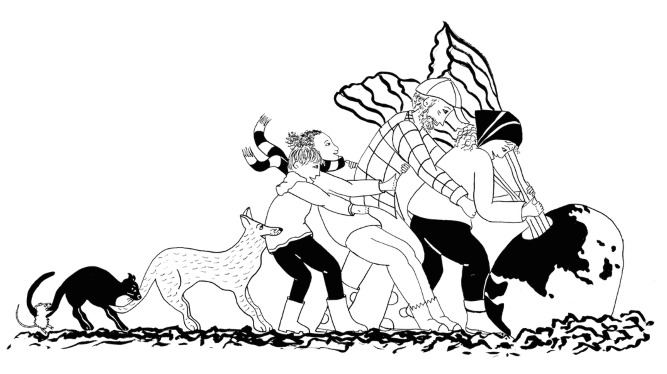Join us at the launch event of Institute for Degrowth Studies together with Pufendorf IAS discussing a new book Towards a Political Economy of Degrowth edited by Ekaterina Chertkovskaya, Alexander Paulsson and Stefania Barca. The collection consists of fifteen contributions which bring degrowth into dialogue with critical social theories, cover previously unexplored geographical contexts and discuss some of the most contested concepts in degrowth. Together, they hint towards informed paths for socio-ecological transformation. The Pufendorf Institute for Advanced Studies, together with Institutet för nerväxtstudier, will host a discussion of the book with its editors and authors, complemented by some fika and refreshments to celebrate the publication.
Please register in advance here: https://www.pi.lu.se/form/towards-a-political-economy-of-degrowth
Discussant: Diana Mulinari (Gender Studies, LU) Participating authors/editors: Stefania Barca (CES, University of Coimbra), Ekaterina Chertkovskaya (Technology & Society, LU), Santiago Gorostiza (ICTA, Autonomous University of Barcelona), Catia Gregoratti (Political Science, LU), Mine Islar (LUCSUS, LU), Max Koch (Social Work, LU), Alexander Paulsson (Business Administration, LU) and Riya Raphael (Gender Studies, LU). The event will be introduced by Ann-Katrin Bäcklund (director of the Pufendorf IAS).
From the cover
Since the 1970s, the degrowth idea has been proposed by scholars, public intellectuals and activists as a powerful call to reject the obsession of neoliberal capitalism with economic growth, an obsession which continues apace despite the global ecological crisis and rising inequalities. In the past decade, degrowth has gained momentum and become an umbrella term for various social movements which strive for ecologically sustainable and socially just alternatives that would transform the world we live in.
How to move forward in an informed way, without reproducing the existing hierarchies and injustices? How not to end up in a situation when ecological sustainability is the prerogative of the privileged, direct democracy is ignorant of environmental issues, and localisation of production is xenophobic? These are some of the questions that have inspired this edited collection.
Editors: Ekaterina Chertkovskaya, Alexander Paulsson, Stefania Barca
Authors: Stefania Barca, Patrick Bond, Hubert Buch-Hansen, Ekaterina Chertkovskaya, Giacomo D'Alisa, Santiago Gorostiza, Catia Gregoratti, Gökhan Gülbandilar, Tuula Helne, Alf Hornborg, Tuuli Hirvilammi, Mine Islar, Max Koch, Emanuele Leonardi, Felipe Milanez, Alexander Paulsson, Riya Raphael
